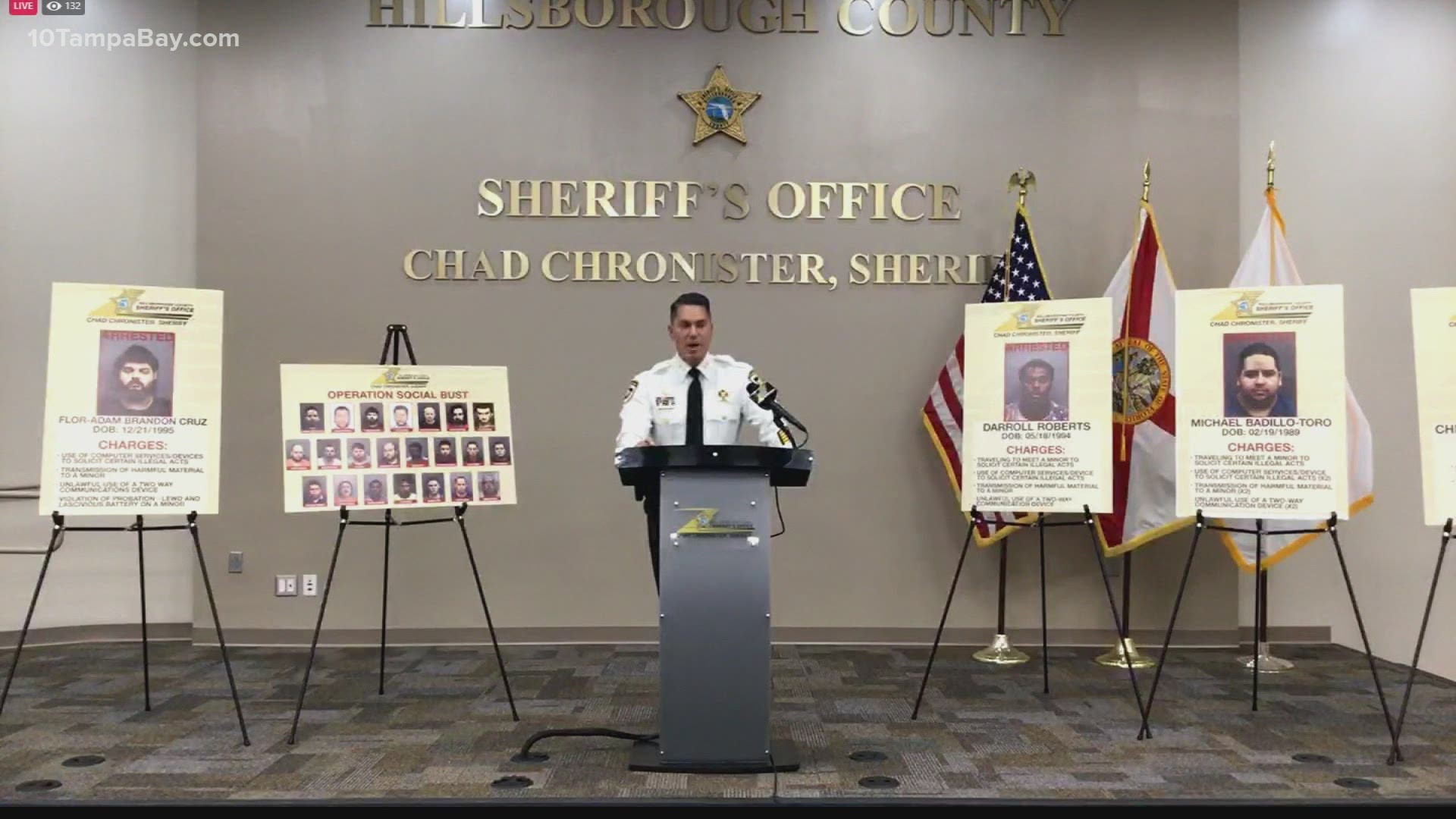TAMPA, Fla — An undercover online chat operation in Hillsborough County led to the arrests of almost two dozen people.
Hillsborough County Sheriff Chad Chronister said the people arrested, including some registered sex offenders, sought out sex from minors.
During the operation, detectives went undercover and posed as underage girls and boys on social media.
At a press conference Thursday, Chronister shared the results of the undercover operation where within four days, 22 individuals allegedly attempted to arrange sex with someone they thought was a child. Many of those accused predators used fake social media accounts, lied about their ages and drove from other areas to meet up, according to law enforcement.
Chronister left a message to parents saying: "Protecting children, online and preserving their innocence, is a shared responsibility. It involves law enforcement, our community and you. Be mindful of what your child is doing online, and who they are talking to. And, take the necessary steps to educate your child to prevent these online predators from taking their innocence. When it comes to children being online, there is no such thing as being too overprotective as a parent."
Watch the full press conference here:
This latest online sexual predator bust is a reminder to all parents to be proactive and educate their children about the risks. Especially during the pandemic as more kids spend more time on computers and tablets, parents worry about the additional exposure their kids are having.
"It's incredibly easy to meet a stranger online. Your goal should not be to avoid meeting strangers, your goal should be to keep yourself safe while meeting them," 19-year-old Jonathan said.
His father, Kimball Lewis, is the CEO of Empowering Parents which is a website full of resources and helpful tips for parents looking to navigate different parenting needs and challenges.
"You need to clearly communicate to your kids early on what is appropriate and what is not. And who is a stranger or who could be pretending or lying to be someone else," Lewis said. "Teach them that not everyone has good intentions and wants to help you."
Lewis says small changes like keeping their social media accounts private and allowing parents to follow all of their accounts can help increase safety. And warning them about psychology traps.
"If someone goes after your kid online, they are going to be nice to them and not act mean. So warn them that people being nice may be trying to be manipulative or reach another goal that you don't see or understand," Lewis said.
Other tactics that can help are teaching them to keep private information private and not share photos. Adults can use parental controls (but know that's not foolproof) or empower their kids with reporting tools, so if someone is making them uncomfortable, they know how they can block or report them. You can even create a technology contract with your kids.
"If you go to a lot of parenting websites and click the technology tab you'll see a technology contract. Print that out and go over it with your kid, so they understand what you're trying to explain to them better," Lewis said.
For more ways to help protect your child from online predators, check out this link.
What other people are reading right now:
- President Trump says he won't participate in virtual debate with Joe Biden
- Doctor: New COVID-19 rapid tests will benefit Florida if used properly
- Server configuration said to cause Florida voter registration crash
- What you need to know about the 6 constitutional amendments on Florida ballots
- Hurricane Delta in the Gulf of Mexico: Storm's path, latest forecast
- How to watch the Draconid meteor shower
►Breaking news and weather alerts: Get the free 10 Tampa Bay app
►Stay In the Know! Sign up now for the Brightside Blend Newsletter

